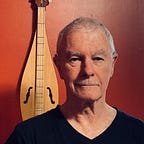Boat rides on the Love Canal
Nothing Donald Trump said during Thursday’s final Presidential debate told us more about who he is and how he views life than his response to a question that moderator Kristen Welker posed to both candidates in the closing minutes.
“President Trump,” she said, “people of color are much more likely to live near oil refineries and chemical plants. In Texas, there are families who worry the plants near them are making them sick. Your administration has rolled back regulations on these kinds of facilities. Why should these families give you another four years in office?”
Trump didn’t hesitate. “The families that we’re talking about are employed heavily and they are making a lot of money, more money than they’ve ever made,” he said.
“If you look at the kind of numbers that we’ve produced for Hispanic, for Black, for Asian, it’s nine times greater the percentage gain than it was under in three years than it was under eight years of the two of them (Obama and Biden) to put it nicely, nine times more.
“Now somebody lives — I have not heard the numbers or the statistics that you’re saying — but they’re making a tremendous amount of money. Economically, we saved it (the oil industry) and I saved it again a number of months ago, when oil was crashing because of the pandemic. We saved it.
“We got Saudi Arabia, Mexico and Russia to cut back, way back. We saved our oil industry and now it’s very vibrant again and everybody has very inexpensive gasoline. Remember that.”
That’s kind of like saying, “Well, yeah, they live on the Love Canal and their kids are getting sick, but the gondola rides for tourists are putting money in their pockets.”
Except the President didn’t even think to mention the kids. He didn’t even seem to grasp the problem. Or understand the problem exists. To him, it’s all about the money. Always. Paychecks are more important than public safety.
It’s not that I don’t understand the importance of a paycheck, for reasons of self-esteem as well as everyday necessity. Goodness knows I’ve worked hard to collect them myself.
I also know that there are poisoned places in states such as Texas and Louisiana that people are willing to tolerate if it keeps the refineries and chemical plants responsible open. They owe their jobs, directly or indirectly, to those industries.
But this doesn’t have to be an either-or issue, and it shouldn’t be.
It’s why we need a coordinated, consistent national effort to move faster toward renewable, cleaner energy — an effort that includes taking care of and providing training for people whose livelihoods will be affected, an effort on the scale of gearing up for World War II.
Biden’s reaction to Welker’s question indicated he has both empathy for the Americans endangered by industrial pollution and a grasp of the seriousness of what’s at stake in the larger sense. He wants our country to transition — transition, not lurch — to an economy run with fuel sources that aren’t as bad for our air, our water or the ground.
“Those people live on what they call fence lines,” he said. “He doesn’t understand this. They live near chemical plants that, in fact, pollute, chemical plants and oil plants and refineries that pollute.
“The fact is those frontline communities, it’s not a matter of what you’re paying them. It matters how you keep them safe. What do you do? You impose restrictions on the pollutants . . . coming out.”
It should have been an easy question for both candidates. Only one of them got it.
